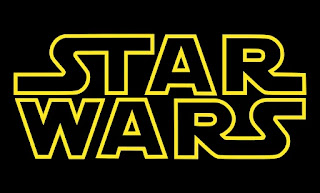SEQUEL TRILOGY
DEFENDING THE STAR WARS SEQUEL TRILOGY
Many people hate
them just because they are a "Disney product", meanwhile others have
quite understandable reasons in terms of plot and characters to dislike these
films.
But I, as a fan
of this trilogy (although that doesn't mean it's my favorite) and seeing how
it's usually treated, have decided to analyze it in detail to show that it's
not as bad as many people say.
I have divided
this article into 5 parts: I will dedicate the first three to each of the
films, the fourth to the characters and the fifth and last to a vision of the
trilogy as a whole and its place within Star Wars. So may the Force be with us.
THE FORCE AWAKENS
It all begins
here. Luke Skywalker has vanished, and in his absence the First Order has risen
from the ashes of the Empire with the intention of subduing the galaxy under
its yoke and bringing down the last Jedi. General Leia Organa leads a small
group of rebels called the Resistance who are trying to confront the First
Order and find Luke to help them in their struggle. The young junkyard Rey and the storm trooper FN2187 (aka Finn) get unexpectedly
involved in this story.
With this story
we are introduced to the characters of this new trilogy while bringing back the
heroes of the original trilogy. Regardless of the reasonable resemblance that
the film in general has with A New Hope,
the reality is that the formula used to introduce us to the new characters and to
this trilogy works. It is a good first chapter in the sense that there is
nothing that can be considered controversial. Things get complicated in the
next one.
THE LAST JEDI
Episode VIII was
meant to solve the doubts left by the previous one: Snoke, why was Luke in
exile... but Rian Johnson's way of solving those doubts did not please
everyone. But that doesn't mean he didn't do it in a coherent way.
Let's start with
Luke Skywalker. To understand his exile you have to go back in some ways to
(attention) the TV series The Clone Wars
and analyze some Jedi to realize that these peacekeepers are not perfect
heroes, they have their weaknesses. Obi-Wan Kenobi's weakness is his love for
Satine Kryze. But he manages to overcome it. Master Yoda's is the fear to the
fall of the Jedi, but he overcomes it by assuming that it is something that
will happen because it is the will of the Force. Luke Skywalker's weakness is
the fear of failing as a master and creating a monster, so he goes into exile.
But in the end he overcomes that fear. Luke has a beautiful arch of fall and
redemption in The Last Jedi, but not
everyone appreciates it.
Rey has identity
issues. Her connection to Kylo Ren and her training at Ahch To have an impact.
But she manages to overcome them, realizing that her past does not to determine
her future. However, that doesn't mean she assumes been a nobody. On the other
hand, Kylo Ren is free of her ties to Snoke and Darth Vader. He breaks his mask
because in reality, that mask was not meant to intimidate, but to hide. It
takes him to kill his father, to be defeated by Rey and humiliated by Snoke to
realize it. Speaking of Snoke. Maybe the aura of mystery surrounding him in the
previous movie was too much, because his easy death here makes it clear that
he's just a pawn of someone more powerful. So let’s talk about that someone.
THE RISE OF SKYWALKER
Palpatine! He's
alive! That famous line from Revenge of
the Sith about the unnatural abilities of the dark side was not a lie to
lure Anakin to the dark side. It is true that the Sith can cheat death. Not
much more explanation is needed.
His constant
change of mind (first he wants Rey to die, then he does not, then he does) also
has its explanation: the Emperor only cares about his plans and nothing else.
As for Anakin
and his redemption, they are intact. Because the Prophecy said that only the
Chosen One could destroy the Sith and bring balance to the Force. And Anakin
did it! Whether Palpatine found a way to resurrect himself has nothing to do
with it. Anakin brought balance to the Force, but no one said that balance
would last forever. Rey, aided by all the Jedi including Anakin, restored the
balance Anakin had already established and Palpatine had broken.
I find the creation
of the Final Order perfectly credible. The
Clone Wars and Star Wars Rebels showed
us that Palpatine was usually more concerned with other matters than the Empire
he was forming or ruling, so it could be that the construction of that army
began before the fall of the Empire. And even if that was not the case, it is
still 31 years that separate the events of Return
of the Jedi from those of The Rise of
Skywalker. Plenty of time to build a new Empire.
The relationship
between Rey and Kylo Ren is the definitive proof that episode IX doesn’t
ratckon the VIII, since it deepens and expands that relationship more (I talk
more about it in the characters section).
The final confrontation between Rey and Palpatine, may seem simple, but it is loaded with symbolism. Rey crossing those two lightsabers is Rey helped and supported by all the Jedi, and Palpatine is, as he says, all the Sith. Furthermore, the two sabers she uses are those of Leia and Luke, the sons of the Chosen One. Well, and Luke's sword is also Anakin's.
CHARACTERS
-Rey: As I said,
the character of Rey suffers from a lack of identity. Everything that happens
to her affects her, and it's not until the last moment, when she answers
"Rey Skywalker", that she finally finds herself.
And the truth is
that both The Force Awakens and The Last Jedi give us "clues"
that Rey is a Palpatine. She has several approaches to the dark side (which
even Luke Skywalker can see) and her lightsaber fighting style is almost
identical to her grandfather's.
In the end, on
Tatooine, she calls herself a Skywalker because she realizes that the
Skywalkers have been her real family. And we are not defined by our past.
-Kylo Ren: Ben
Solo is unbalanced during The Force
Awakens and much of The Last Jedi.
It is when he assumes the identity of supreme leader that he finally feels
free, as I have explained in the section on The
Last Jedi.
As for his
actions in The Rise of Skywalker, he
rebuilds his mask because he no longer hides behind it, now it’s a complement
that makes him truly intimidating.
He redeems
himself when his mother and father forgive him and when he realizes that
although he is the natural heir to Darth Vader, just like his grandfather he
has to end the conflict within him by turning to the light side. And his
relationship with Rey is influential. On that dyad:
-A Jedi cannot
take lightsabers from all parts of the universe. Rey and Kylo Ren share a
unique connection that allows them to do that. Rian Johnson teased it in The
Last Jedi with a few drops of water, and in Episode 9 that is taken further.
And about them being able to heal, well, "The Child" (better known as
Baby Yoda) proved before the arrival of The
Rise of Skywalker that doing that through the Force was possible in The Mandalorian. And no one complained,
right?
-Other
controversial characters:
-Finn: Finn seems to play at being a
Jedi in Episode VII, yet in the end he turns out to be just another rebel. But
his connection to the Force remains there, and it shows that indeed, anyone can
feel the Force. Rian Johnson showed it again through the broom boy, and J.J.
with the character of Jannah (Naomie Ackie) and his battalion of soldiers who
rebelled. As for his romantic interests, he can't decide between Rey, Rose and
Jannah, and there's nothing we can do about it.
-Hux: This officer of the First
Order has an interesting journey throughout the trilogy. In episode seven, he's
an intimidating and powerful high-ranking officer. But everyone humiliates him
in The Last Jedi, and Snoke's death
and Kylo Ren's rise end his career. His hate for Kylo Ren, the main culprit in
his downfall, is so intense that he no longer cares about the fate of the
galaxy. All he cares about is that he loses. Totally comprehensible.
-Luke Skywalker: I've talked about
him before but I was missing his little intervention in The Rise of Skywalker. This scene is the ultimate proof that Luke
has assumed his mistake, and he's trying to stop Rey from making that same
mistake.
GENERAL OVERVIEW
AND CONCLUSION
Therefore, in
the end it turns out that the sequel trilogy is not as incoherent as it seems.
It may seem so if you look at it from above, but if you analyze it well, you
realize that it is not. In my opinion, the main problem with the sequels is how
little time they cover. The Last Jedi
is a very straightforward sequel to The
Force Awakens, and a year goes by between episode eight and The Rise of Skywalker. While in the
prequels, for example, ten years pass between episodes I and II and three years
between episodes II and III. The short time that the sequels cover helps to
increase the confusion about the evolution of the facts and the characters, but
it has been demonstrated that this doesn’t mean that there is no evolution or
that it is inconsistent. And it does not undo the previous episodes. Rey and
Kylo Ren are heirs of Anakin Skywalker in one way or another.
In the end, I
know that the opinion of those of you who don't like it probably won't change
after reading this, but at least I hope that it will make you see it with
different eyes. And for those of you who already like it, I know that you'll
love it even more now; in any case, I hope that my goal of enhancing the name
of this trilogy has been achieved.
And remember,
the Force will be with you... always.











Comentarios
Publicar un comentario